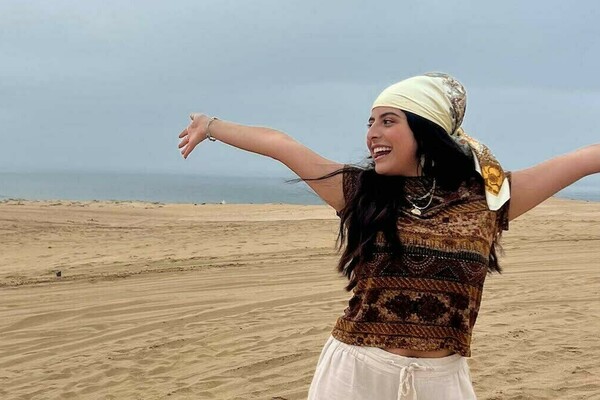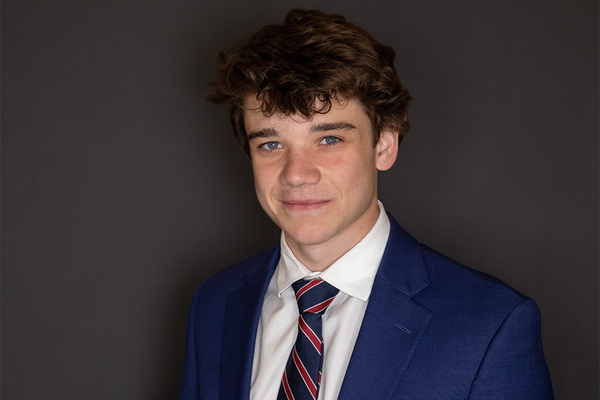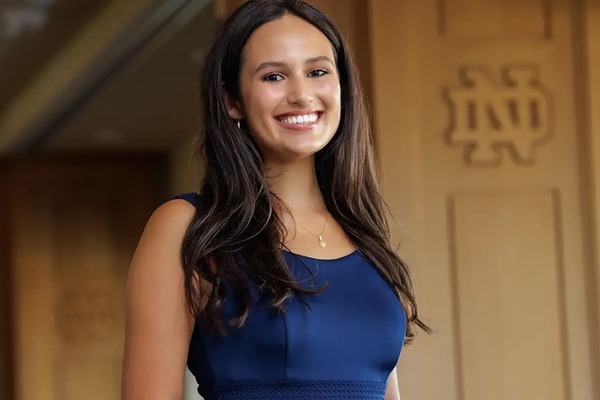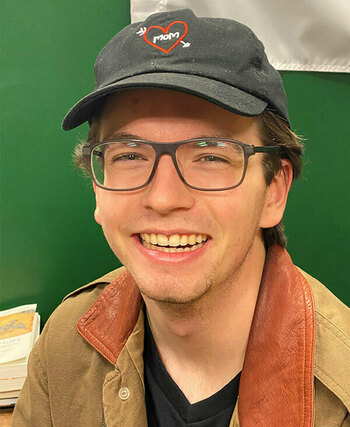
Matthew Bisner believes knowledge is best used when applied to the real world — and that’s why he’s spent much of his time at Notre Dame using what he has learned in the classroom to strengthen the community.
A senior political science and peace studies major with a gender studies minor, Bisner looks to his coursework for tools and inspiration to improve the world around him — from aiding students in the midst of a pandemic to campaigning for a more inclusive campus.
“In classes we’re very good about talking about things, but if we leave that in the classroom and don’t do anything with that knowledge, we’re doing ourselves and our neighbor a disservice,” said Bisner, who will serve as student body vice president this year. “If we set the things that we’re passionate about on a shelf for the classroom and don’t engage with their implications for our communities, then how will our communities ever get better?”
Finding new passions
When he first arrived at Notre Dame, Bisner knew only one thing for certain about his academic path — he wanted to major in political science. Years of mock trial, Model United Nations, and participating in a protest movement to change the Mississippi state flag had made him eager to learn more about law.
Besides being curious about court cases and precedent, he began to ponder the societal implications of law. Bisner took Introduction to Peace Studies during his first year and discovered a field that perfectly matched his interests.
“It was everything I wanted in a political science class but it didn’t label itself as politics,” Bisner said. “The class was about justice and how we achieve justice. Peace studies combined everything that I wanted to study — the pursuit of justice and nonviolent social change — but allowed me to bring the really legal side that I had to the classroom.”
“In classes we’re very good about talking about things, but if we leave that in the classroom and don’t do anything with that knowledge, we’re doing ourselves and our neighbor a disservice. If we set the things that we’re passionate about on a shelf for the classroom and don’t engage with their implications for our communities, then how will our communities ever get better?”
His interest in gender studies was sparked by a conversation with a friend in the program. He realized the discipline involved things like social movement studies but was also keenly engaged in work beyond the classroom.
Once he took Introduction to Gender Studies and a course called Prisons and Policing, he was hooked.
“We looked at the history and the current lived experience of women of color, trans people of color, and gender-nonconforming people that get the short end of the stick when it comes to the prison and policing systems,” Bisner said. “The class was focused on action and what we can do, whether that was letter-writing campaigns or increasing community accountability.”
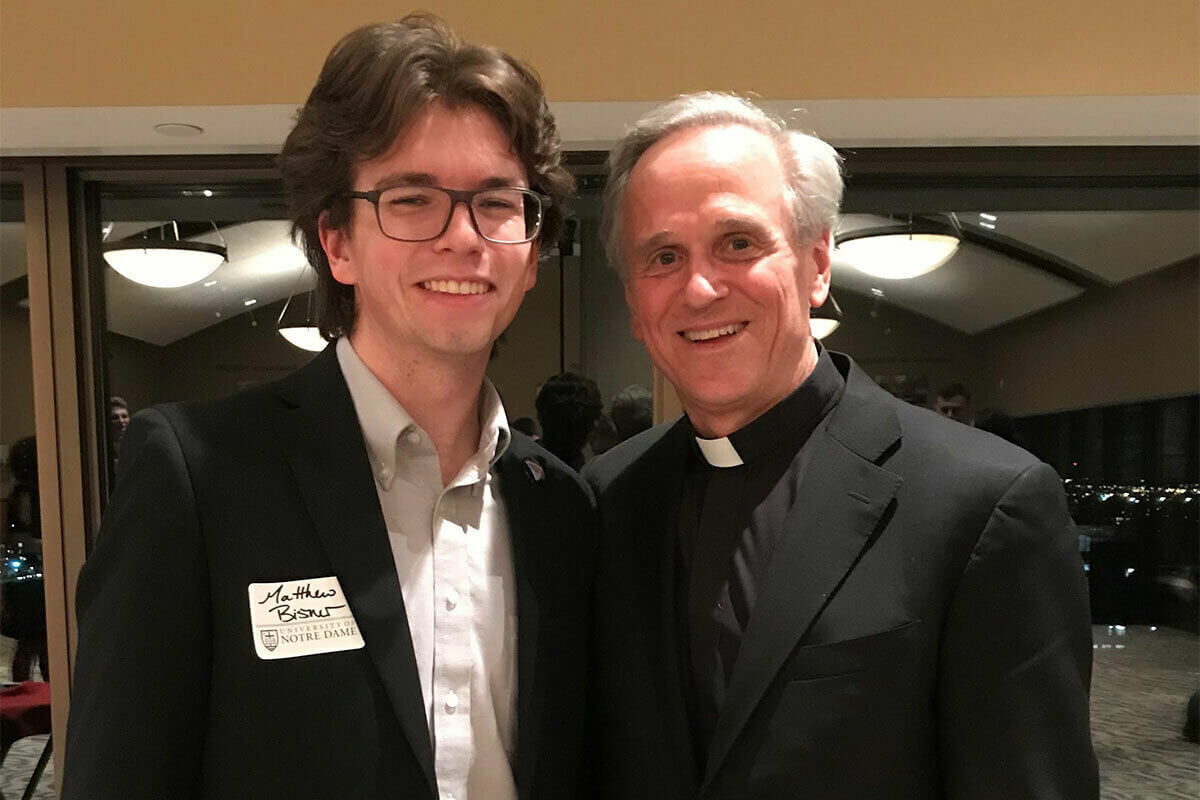
Care for community
Bisner’s three fields of study have all shaped his worldview — through political science, he looks backward to explain the present, and through gender and peace studies, he looks forward to building a better future.
When the coronavirus pandemic first hit last spring, Bisner used knowledge from his studies to envision a better immediate future for the Notre Dame community.
When students were informed that in-person classes would not be resuming after spring break, Bisner, inspired by a friend at another university, took action to ensure that all students had transportation, housing and food.
Bisner organized a spreadsheet in which students, parents and faculty members from the tri-campus community could connect with one another about individual needs ranging from information about free internet access to a place to stay in South Bend.
“It was just community members providing for other community members,” Bisner said. “At a theoretical level that’s called mutual aid, which is just making sure that the life we have is survivable for everyone. It’s based in indigenous societies’ commitment to reciprocity and mutual aid, but it’s also built into a very decentralized politics of care for each other.
“I wouldn’t have gotten that worldview if I had just stayed in political science or peace studies because it really is all three of them working together.”
Connecting and understanding
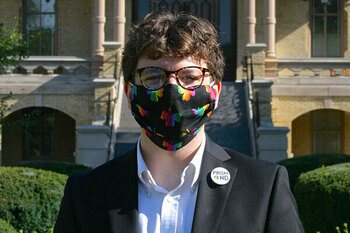
Above all, Bisner believes that the Notre Dame community is best served when academics transcend the walls of the classroom.
Bisner’s commitment to this belief is demonstrated by his involvement in a variety of organizations on campus — he was an organizer with End Hate at Notre Dame during his sophomore year, worked with the Center for Social Concerns on improving access to menstrual products in all campus buildings, served as PrismND president and president of the Student Union’s Judicial Council.
“Arts and Letters allows you to connect with other people through discussion and debate,” Bisner said. “That’s so important because it translates out of the class to engaging with community members and people who might not think the way you do. That’s becoming more and more necessary as a social and political imperative in the U.S. At the daily level, it’s just about understanding those around you, and that’s what Arts and Letters really emphasizes.”
